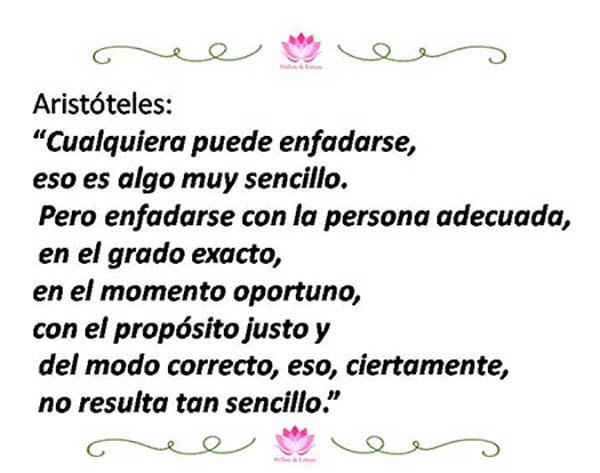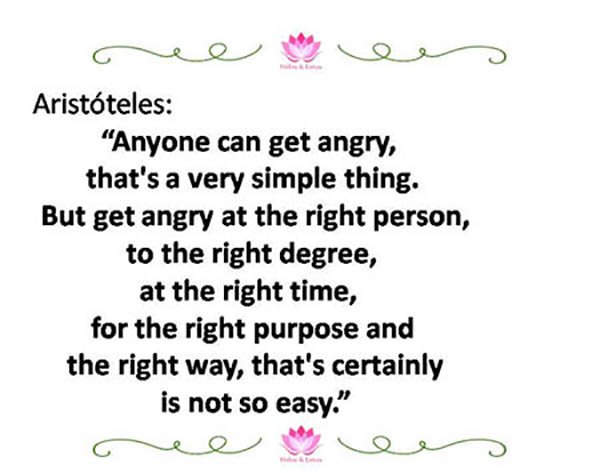Iniciativa. Expresar lo que pensamos y sentimos//Iniciative. Express what we think and feel

Expresar lo que pensamos y sentimos
En nuestra vida cotidiana son muchos los pensamientos y sentimientos que no expresamos porque corresponden a nuestro mundo íntimo, de pronto algunos los valoramos como tesoros, los consideramos ideas geniales, proyectos que hasta no concretarlos no deseamos darlos a conocer, otros son ráfagas que pasar sin que les prestemos gran atención, otros, sencillamente, no los ponemos a disposición de los demás porque es nuestro razonar interno, nuestra conversación con nosotros mismos y no hay espacio para la intervención de alguien más.
Cada una de estas situaciones son válidas y son parte de nuestra libertad de pensamiento, por eso, a veces, nos molesta que alguien pregunte, qué estamos pensando, aunque lo haga desde el genuino interés de saber que nos encontramos bien.
Por otra parte también nos acompañan pensamientos que, aún cuando los queremos expresar, no encontramos la manera adecuada para ello. En este punto es pertinente recordar que pensamiento y emoción van de la mano y al no expresar uno el otro queda como un residuo nocivo que se va acumulando en nuestro ser con sus conocidas consecuencias que van afectando nuestro bienestar integral.
Al respecto, la ciencia, en las últimas cuatro décadas ha profundizado en el conocimiento del cerebro, el funcionamiento de la mente y su relación con las emociones. Hoy en día sabemos por ejemplo que existe una estrecha relación entre los pensamientos negativos y los malestares del organismo, que las emociones que no expresamos como la rabia, tristeza, miedo tienen incidencia en el funcionamiento de nuestros órganos. VER. Aún teniendo esta información muchos podemos tener dificultad para expresar eso que “llevamos por dentro”, también sabemos que en la medida en que nos conocemos más profundamente y reconocemos las causas podemos actuar sobre ello, por lo que es apropiado preguntarse:
¿Por qué me cuesta expresar lo pienso y siento?

Por lo general, esta dificultad surge en el ámbito familiar, en los primeros años de crianza y que se van reforzando en el crecimiento, Sus principales causas son:
A.- Miedo: A veces callamos porque tememos a la reacción de las personas, por ejemplo: a un padre o madre irascible que no puede escuchar nada que lo contradiga; una pareja manipuladora que amenaza o se hace víctima; un superior laboral que puede poner en jaque tu puesto de trabajo. Lo cierto es que el miedo a las reacciones de los demás nos paralizan.
B.- Jugar al mundo feliz: No aceptas el conflicto en tu vida, por lo tanto has aprendido a callar antes que plantear una situación que puede molestar o afectar a la otra persona, sin tomar en cuenta cómo te afectas a ti mismo.
C.- El auto-juzgarte: Consideras que hay sentimientos y emociones que no deben sentirse porque son “malos” o expresarlos nos debilitan ante los demás, por ejemplo: mostrar celos, envidia, depresión, estrés crónico… como sentimientos son válidos a la vez que dañinos, así que en vez de juzgarnos por sentirlo, lo mejor y más acertado que podemos hacer, por nosotros y los demás, es buscar ayuda para superarlos o por lo menos minimizar sus efectos.
D.- Tus sentimientos no valen: Acá el punto relevante es la autoestima y el sentimiento que lo define es el sentir que lo que piensas y sientes es menos importante que el sentimiento de los demás, por lo que optas no expresarte.
Explorar, conocer y profundizar en tus razones para no expresar los pensamientos y sentimientos te ayuda a encontrar las estrategias más adecuadas para aprender a hacerlo, porque se trata de un aprendizaje que con la práctica constante agarraremos la habilidad y destreza necesaria para no quedarnos con algo que nos ahoga y nos daña.
Ahora bien, un aspecto que es necesario aclarar es que no podemos ir por allí diciendo todo lo que sentimos y pensamos sin tomar en cuenta como afectamos a los demás porque lejos de ayudarnos lo que logramos es separarnos más de los otros.
De manera muy particular el tema de hoy está referido a aquellas palabras o acciones que se producen en la interrelación y que nos generan sentimientos de inconformidad, ira, dolor, miedo, entre otros y que por algún motivo no logramos expresarlos de manera adecuada. La queja, La crítica o el constante pesimismo corresponden a otra situación comunicativa.
La Asertividad
La Asertividad es la herramienta que nos ofrece la inteligencia emocional para expresar de manera constructiva y eficiente lo que pensamos y sentimos sin caer en los extremos de la agresividad o la pasividad, porque tal como dijo Aristóteles:

Esta elocuente frase me parece la mejor lección de Asertividad. Trabajemos con ella punto por punto, veamos:
1.- Las emociones. Digamos que para cada emoción hay un detonante, algo que nosotros mismos u otra persona dice o hace que desencadena una alteración en nuestro estado de ánimo ubicándonos en el malestar. Esta emoción es la “debemos” expresar, que no se quede en nosotros socavando el equilibrio interno y convirtiéndose en sentimientos dañinos como el rencor, resentimiento, frustración e impotencia.
2.- La persona indicada. Es aquella que por sus actos o palabras desencadena la emoción. Desahogar este malestar en los hijos, la pareja, el compañero de trabajo o cualquier otra persona que no la producen crea un mayor malestar en ti mismo porque surge la culpa, el sentimiento de injusticia y arrepentimiento, eso en caso de darnos cuenta, porque también sucede que nos habituamos a desahogar las emociones en aquel que consideramos el más débil, aquel que por diversas razones no puede darnos un parado y ubicarnos.
Entonces ser asertivo es expresar nuestro sentimiento a la persona que corresponde.
3.- La medida exacta. Los exabruptos, esa respuesta exagerada y hasta descontrolada la mayoría de las veces se debe a una gran acumulación y es literal cuan decimos “exploté”, sacamos a flote lo que es y no es, muchas veces hiriendo con las palabras, debilitando o destruyendo relaciones porque luego, recoger lo dicho, me atrevería a decir que es casi imposible, ya a estas alturas sabemos que ese dicho: “ Las palabras se las lleva el viento”, no es tan cierto, ellas quedan y hacen mella.
De allí que somos más asertivo cuando no acumulamos malestares con las personas, sino que decimos lo que sentimos cuando corresponde.
4.- El momento indicado. Va en relación con el punto anterior, en principio el momento oportuno es cuando ocurre el hecho, sin embargo, como dicen, ciertas condiciones aplican, porque, por ejemplo, si estas tan ofuscado, ofendido, iracundo ese no es el momento indicado. El momento será cuando te calmes, cuando te des un tiempo mínimo para pensar tu respuesta y expresarla de la mejor manera posible.
El lugar también es importante tomarlo en cuenta para definir el momento oportuno. Hacer un “reclamo” a un compañero de trabajo delante el grupo va en contra de una comunicación asertiva, al igual que platear, en la cama, una situación molesta a la pareja.
5.- El propósito justo. Es interesante este punto porque ¿Cuál es el fin de expresar lo pensamos y sentimos? Aparte de desahogarnos y soltar cargas emocionales el fin último es ser escuchados y respetados en nuestros planteamientos lo cual también implica flexibilidad y capacidad de llegar a consensos.
6.- El modo correcto. Esto del modo correcto es muy subjetivo, cada uno tiene su estilo de cómo dice las cosas, en lo personal prefiero el modo directo y puntal, lo cual no quiere decir que no busque las mejores palabras que expresen con claridad lo que siento y como me afecta.
Hay quienes prefieren el estilo de la insinuación, el irse por las ramas o ese conocido “yo me le meto por debajito” el asunto con estas estrategias es que de pronto no le queda claro a la otra persona qué es realmente lo que te molesta, lo que hace que tu paz y tranquilidad sea vulnerada, y si esto no queda claro no hay comunicación asertiva.
Expresar nuestros sentimientos y emociones es trabajar por nuestro bienestar físico, mental y espiritual, aprender a ser asertivo en la manera de expresarnos mejora nuestra relación con nosotros mismos y los demás, así que bien vale trabajar en ello.
Gracias por ser y estar
@damarysvibra

Bien amigos y amigas después de un mes sin iniciativas desde la columna “Integrales y en Expansión” por la celebración del mes de la salud en nuestra apreciada comunidad @holos-lotus hoy les traemos una nueva iniciativa con este nutritivo tema “Expresar lo que pensamos y sentimos” para ello puedes enfocarte en cualquiera de los siguientes puntos u otro que se encuentre dentro del tema.
*¿Expresas con facilidad tus pensamientos y emociones?, ¿Qué consideras que contribuyó a que desarrollaras esas habilidades?
*¿Has tenido la experiencia de no poder expresar tus pensamientos y emociones?, ¿Lo has superado? Cuéntanos como hiciste para superarlas.
*La Asertividad es una técnica para mejorar nuestra comunicación. ¿La conoces, has profundizado en ella, la has puesto en práctica, cómo han sido los resultados?
Para publicar toma en cuenta lo siguiente:
• Publica en nuestra comunidad @holos-lotus
• La publicación debe tener mínimo 500 palabras
• Utiliza como primera etiqueta #asertividad para ubicar tu post con facilidad.
• Coloca el enlace de tu publicación en los comentarios de este post.
• Si es de tu gusto invita a un hiver amig@ a participar y rebloguea esta publicación para que llegue a más personas.
* Publica desde ahora hasta el próximo martes 10 de mayo de 2022
Gracias por participar. Te estaremos leyendo y comentando

Expressing what we think and feel
In our daily life there are many thoughts and feelings that we do not express because they correspond to our intimate world, suddenly some of them we value as treasures, we consider them as great ideas, projects that we do not want to make them known until they are realized, others are bursts that pass without us paying much attention to them, others, simply, we do not make them available to others because it is our internal reasoning, our conversation with ourselves and there is no room for the intervention of someone else.
Each of these situations are valid and are part of our freedom of thought, that is why, sometimes, it bothers us when someone asks us what we are thinking, even if they do it from the genuine interest of knowing that we are well.
On the other hand, we are also accompanied by thoughts that, even when we want to express them, we do not find the right way to do so. At this point it is pertinent to remember that thought and emotion go hand in hand and when we do not express one, the other remains as a harmful residue that accumulates in our being with its known consequences that affect our integral wellbeing.
In this regard, science, in the last four decades has deepened in the knowledge of the brain, the functioning of the mind and its relationship with emotions. Today we know, for example, that there is a close relationship between negative thoughts and the ailments of the organism, that emotions that we do not express such as anger, sadness and fear have an impact on the functioning of our organs. SEE. Even having this information many of us may have difficulty to express what we "carry inside", we also know that as we know ourselves more deeply and recognize the causes we can act on it, so it is appropriate to ask ourselves:
Why do I find it difficult to express what I think and feel?

Generally, this difficulty arises in the family environment, in the first years of upbringing and that are reinforced in the growth, its main causes are:
A.- Fear. Sometimes we keep silent because we fear the reaction of people, for example: an irascible father or mother who cannot listen to anything that contradicts him or her; a manipulative partner who threatens or becomes a victim; a superior at work who can put your job in check. The truth is that fear of the reactions of others paralyzes us.
B.- Playing the brave new world. You do not accept conflict in your life, so you have learned to keep quiet rather than raise a situation that may upset or affect the other person, without taking into account how you affect yourself.
C.- Self-judging. You consider that there are feelings and emotions that should not be felt because they are "bad" or expressing them weakens us before others, for example: showing jealousy, envy, depression, chronic stress ... as feelings are valid while harmful, so instead of judging us for feeling it, the best and most accurate thing we can do, for us and others, is to seek help to overcome them or at least minimize their effects.
D.- Your feelings are not worth. Here the relevant point is self-esteem and the feeling that defines it is the feeling that what you think and feel is less important than the feelings of others, so you choose not to express yourself.
Exploring, knowing and deepening your reasons for not expressing thoughts and feelings helps you to find the most appropriate strategies to learn how to do it, because it is a learning process that with constant practice we will gain the ability and skill necessary to not stay with something that stifles and hurts us.
Now, one aspect that is necessary to clarify is that we cannot go around saying everything we feel and think without taking into account how we affect others because far from helping us what we achieve is to separate us more from others,
In a very particular way today's topic is referred to those words or actions that occur in the interrelationship and that generate feelings of dissatisfaction, anger, pain, fear, among others and that for some reason we fail to express them adequately. Complaints, criticism or constant pessimism correspond to another communicative situation.
Assertiveness
Assertiveness is the tool that emotional intelligence offers us to express constructively and efficiently what we think and feel without falling into the extremes of aggressiveness or passivity, because as Aristotle said:

This eloquent sentence seems to me the best Assertiveness lesson. Let's work with it point by point, let's see:
1.- Emotions. Let's say that for every emotion there is a trigger, something that we ourselves or another person says or does that triggers an alteration in our state of mind, placing us in discomfort. This emotion is what we "must" express, so that it does not remain in us undermining the internal balance and becoming harmful feelings such as resentment, resentment, frustration and impotence.
2.- The right person. It is the one whose actions or words trigger the emotion. To vent this discomfort in the children, the partner, the co-worker or any other person that does not produce it creates a greater discomfort in yourself because the guilt, the feeling of injustice and repentance arises, that in case we realize it, because it also happens that we get used to vent the emotions in the one that we consider the weakest, the one that for diverse reasons cannot give us a stop and locate us.
Then to be assertive is to express our feelings to the person who corresponds.
3.- The exact measure. The outbursts, that exaggerated and even uncontrolled response most of the time is due to a great accumulation and it is literal when we say "I exploded", we bring out what is and is not, often hurting with words, weakening or destroying relationships because then, to collect what was said, I would dare to say that it is almost impossible, and at this point we know that the saying: "Words are carried away by the wind", is not so true, they remain and make a dent.
Hence we are more assertive when we do not accumulate discomfort with people, but we say what we feel when it is appropriate.
4.- The right time. It is related to the previous point, in principle the right time is when the event occurs, however, as they say, certain conditions apply, because, for example, if you are so offended, offended, angry that is not the right time. The moment will be when you calm down, when you give yourself a minimum of time to think about your response and express it in the best possible way.
The place is also important to take into account to define the right moment. Making a "complaint" to a co-worker in front of the group goes against assertive communication, as well as raising, in bed, an annoying situation to the partner.
5.- The right purpose. This point is interesting because what is the purpose of expressing what we think and feel? Apart from venting and releasing emotional burdens, the ultimate goal is to be heard and respected in our approaches, which also implies flexibility and the ability to reach consensus.
6.- The right way. The right way is very subjective, everyone has their own style of how they say things, personally I prefer the direct and pointed way, which does not mean that I do not look for the best words that clearly express what I feel and how it affects me.
There are those who prefer the style of insinuation, going around the bush or that well known "I'll get under your skin" the issue with these strategies is that suddenly it is not clear to the other person what is really bothering you, which makes your peace and tranquility is violated, and if this is not clear there is no assertive communication.
Expressing our feelings and emotions is working for our physical, mental and spiritual well-being, learning to be assertive in the way we express ourselves improves our relationship with ourselves and others, so it is well worth working on it.
Thank you for being
@damarysvibra

Well friends after a month without initiatives from the column "Integral and Expanding" for the celebration of the month of health in our beloved community @holos-lotus today we bring you a new initiative with this nourishing theme "Expressing what we think and feel" for it you can focus on any of the following points or another that is within the theme.
Do you express your thoughts and emotions with ease, and what do you think contributed to the development of these skills?
Have you had the experience of not being able to express your thoughts and emotions, and have you overcome it? Tell us how you overcame them.
Assertiveness is a technique to improve our communication, do you know it, have you studied it in depth, have you put it into practice, how have the results been?
To publish take into account the following:
Post in our community @holos-lotus.
The publication must have a minimum of 500 words
Use as first tag #asertividad to locate your post easily.
Place the link to your post in the comments of this post.
If it is to your liking, invite a hiver friend to participate and reblog this post so that it reaches more people.
* Post from now until next Tuesday, May 10, 2022.
Thank you for your participation. We will be reading and commenting
Translated with www.DeepL.com/Translator (free version)
Fuente de imágenes: 1

Si quieres ser parte activa de esta comunidad puedes escribir y compartir tu contenido en Holos & Lotus, comentar y apoyar las publicaciones de otros usuarios o realizar delegación de HP a la comunidad. Si deseas más información puedes contactar a @miriannalis, @yonnathang, @chaodietas o @pavanjr.
Banner elaborado en Canva con los elementos disponibles en su versión gratuita /
Banner elaborated in Canva with the elements available in its free version.
Banner de la Comunidad diseñada por la artista berlissanoja / Community
Logo de la Comunidad elaborado por el diseñador casilokodesign / Community logo designed by designer casilokodesign.




https://twitter.com/damaryspacheco5/status/1521543127957446657
The rewards earned on this comment will go directly to the person sharing the post on Twitter as long as they are registered with @poshtoken. Sign up at https://hiveposh.com.
Una genial iniciativa amiga. Sobre este tema intentaré resumir mi práctica de control. :)
Un abrazo Feliz tarde
Hola @slwzl me encantará leer tu aporte al tema 😊
Encantada de compartir mi publicación: https://hive.blog/hive-131951/@slwzl/iniciative-express-what-we-think-and-feel-en-es
Saludos con cariño
Hola @damarysvibra que importante son las emociones y sentimientos muy interesante esta iniciativa para hacer una auto análisis nuestro cuerpo emocional muchas veces callado e ignorado.
Buenos día @devania, sí quizás lo más importante sea ese revisarnos para saber que tanto guardamos y actuar en consecuencia. Saludos, me encantará leerte. 😊
Hola amiga @damarysvibra es un gusto realizar esta participación, te dejo el enlace de la misma
https://hive.blog/hive-131951/@cris01/iniciativa-expresar-lo-que-pensamos-y-sentimos-iniciative-express-what-we-think-and-feel
Saludos y bendiciones.
Hola @cris01 gracias por tu participación. Ya paso a leerte y comentar. Saludos cariñosos.😊
Hola mi bella amia aqui estoy cn esta tarea ja ja ya que no tenia sueño y aproveche el momento de inspiracion ja ja lo disfrute
https://peakd.com/hive-131951/@zhanavic69/iniciativa-expresar-lo-que-pensamos-y-sentimosiniciative-express-what-we-think-and-feel-se-lo-digo-o-no-se-lo-digo-esp-eng
Buenos días @zhanavic69 gracias por traer tu post, ya te leo y comento. Feliz día😊
Holaaaaaaaaa bueno vaya y vea y me pone mi nota ja ja ja gracias...a veces creo que me voy por otro lado a lo que es la iniciativa
Excelente iniciativa, acá les dejo mi participacion https://hive.blog/hive-131951/@pietroconti/iniciativa-expresar-lo-que-pensamos-y-sentimos y aprovecho para invitar a @saulos para que se sume a los que participan en la misma.
Gracias por traer tu aporte. Saludos 😊
Excelente iniciativa, siempre es difícil abordar temas que tocan el alma, abrir nuestro corazón y expresarnos.
https://peakd.com/hive-131951/@nocturnus/expresar-lo-que-pensamos-y-sentimos-el-amor-de-mi-vida
Quiero invitar a @jesuspsoto a participar
Gracias @nocturnus por compartir tu experiencia de crecimiento. Saludos 😊
Mi participación https://peakd.com/hive-131951/@eglois/iniciativa-expresar-lo-que-pensamos-y-sentimosiniciative-express-what-we-think-and-feel
y mi apoyo para:
@rosahidalgo
@mllg
@pietroconti
Gracias! Abrazos
Saludos @eglois, disfrute mucho la lectura de tu post un aporte valioso para el tema. Gracias, gracias. 😊
Muy bueno en tema, esta es mi participación. Saludos y bendiciones a todos
https://hive.blog/hive-131951/@yole/el-momento-de-expresarme
Saludos, me encanto tu post, gracias por compartir tus experiencias y aportar al tema. 😊
Hola @damarysvibra!!! Que tema tan genial! Me encanta. Tengo mucho que decir al respecto. Ya mismo me pondré a redactar mi post. Un abrazo y gracias por estas oportunidades tan maravillosas que nos permite expresarnos! Te abrazo fuerte.
Hola @purrix será todo un gusto leerte 😊
Hola amigos por aquí mi expresión
https://hive.blog/hive-131951/@belkisa758/iniciativa-expresar-lo-que-pensamos-y-sentimos-esp-eng
Saludos cordiales.
Gracias @belkisa758 por compartir tan significativa experiencia. Saludos cariñosos. 😊
Mi participacion: https://peakd.com/hive-131951/@mariale07/no-siempre-se-logra-lidiar-con-el-estres-coloreando-espeng
Gracias @mariale07 por compartir tu experiencia. Saludos cariñosos. 😊
Hola,un gusto participar,acá les dejo mi entrada:
https://ecency.com/hive-131951/@marito74/iniciativa-expresar-lo-que-pensamos-4f85bf3204ded
¡Hola! acá les dejo mi participación:
https://peakd.com/hive-131951/@brujita18/iniciativa-yo-mis-pensamientos-y-emociones-esp-eng
¡Saludos!
Hola a todos, aquí mi participación en esta iniciativa
https://hive.blog/hive-131951/@yannet80/esp-eng-iniciativa-expresar-lo-que-pensamos-y-sentimos-or-initiative-expressing-what-we-think-and-feel
Hola estimados amigos,
Acá les comparto mi aporte a la iniciativa:
https://peakd.com/@ksmith7/expresar-lo-que-pensamos-y-sentimos-iniciativa-esp-eng
Saludos fraternos
My participación
https://peakd.com/hive-131951/@nill2021/iniciative-express-what-we-think-and-feel
Buenas 🤗 esta es mi participación
https://peakd.com/hive-131951/@irenenavarroart/expresar-o-contener
Hola mi gente bella, por aquí les dejo mi participación en la iniciativa:
https://peakd.com/hive-131951/@hannymarchan/eng-esp-initiative-thoughts-and-opinions-do-we-express-it-easily-pensamientos-y-opiniones-lo-expresamos-con-facilidad
Hola
https://peakd.com/hive-131951/@mercmarg/iniciativa-expresar-lo-que-pensamos-y-sentimosiniciative-express-what-we-think-and-feel
Un tema muy estimulante para revisarnos, excelente iniciativa. Comparto mi participación. Gracias.
https://peakd.com/hive-131951/@irvinc/tragarse-lo-que-se-siente-or-swallowing-what-it-feels-like-espeng
Hola, esta es la primera vez que participo en una iniciativa de la comunidad. Gracias @damarysvibra por darnos un apoyo para reflexionar y analizarnos a nosotras mismas. Saludos. 🤗❤️
Dejo el enlace de mi post:
https://ecency.com/hive-131951/@palomap3/expresar-lo-que-pensamos-y
https://ecency.com/hive-131951/@carjuvival/iniciativa-expresar-lo-que-pensamos aquí mi participación.. bendecido vida par todos
Saludos, dejo por aquí mi participación.
https://hive.blog/hive-131951/@charjaim/expresar-lo-que-pensamos-y-sentimos-express-what-we-think-and-feel
https://peakd.com/hive-131951/@yadimelgar/iniciativa-expresar-lo-que-pensamos-y-sentimos-initiative-expressing-what-we-think-and-feel
Saludos por aquí mi aporte.
Excelente Iniciativa ❤️🙏
https://peakd.com/hive-131951/@yadimelgar/iniciativa-expresar-lo-que-pensamos-y-sentimos-initiative-expressing-what-we-think-and-feel
Saludos a todos, por aquí dejo mi pariticipación.
https://peakd.com/hive-131951/@enclassecu/initiative-expressing-what-we-think-and-feel-or-be-nice-to-yourself-esp-eng
Mi participación:
https://peakd.com/hive-131951/@actioncats/lo-que-siento-y-pienso-esping
Aunque no era requisito, me agrado comentar las publicaciones de las compañeras @rosahidalgo, @palomap3 y @carjuvival
Hola. Aquí mi post
https://peakd.com/hive-131951/@zuly63/dices-lo-que-sientes-o-sientes-lo-que-dices-esp-eng
Éxitos!!
Hola feliz comienzo de semana... por acá dejo mi participación en esta iniciativa.
https://hive.blog/hive-131951/@soyaruska/esp-ing-iniciativa-expresar-lo
Buenas Noches. Les Comparto mi participación.Ha sido un gusto la reflexión.
https://peakd.com/hive-131951/@graciadegenios/iniciativa-expresar-lo-que-pensamos-y-sentimos-oror-initiative-expressing-what-we-think-and-feel
Hola amiga, saludos. Me es grato y de alegria participar en esta iniciativa. Por aca les dejo mi entrada
https://hive.blog/hive-131951/@nubra11/esp-eng-iniciativa-expresar-lo-que-pensamos-y-sentimos-initiative-expressing-what-we-think-and-feel
Hola muy buenos dias, deseo que todos esten muy bien.
Mi participación: https://peakd.com/hive-131951/@mugueto2022/iniciativa-expresar-lo-que-pensamos-y-sentimosinitiative-expressing-what-we-think-and-feel
Saludos a todos! Por aquí dejo mi entrada
https://peakd.com/hive-131951/@chacald.dcymt/escribelo-y-liberate-or-tips-para-crear-conciencia-emocional-esp-eng
🌈💮🏵️🌻🌺♻️♥️🍄🌎💐🌸🌱💖🌼🌹🥀🎉💋💜🎊🌷☕💙🧁
Que gran iniciativa, tarde pero seguro ¡Aquí mi participación! https://ecency.com/hive-131951/@alizmarpaola/esp-eng-iniciativa-expresar-lo
Hola, mi participación, gracias!
https://hive.blog/hive-131951/@carfelicia/esp-ing-iniciativa-expresar-lo
Hola mi apreciada amiga @damarysvibra 🌻 llegó tarde a tu inicitiva pero con mucho amor presento mi publicación como aporte a la comunidad.
https://peakd.com/hive-131951/@parauri/gritos-en-silencio-or-expresando-mis-pensamientos-esp-eng
Mi abrazo virtual ♥
Gente, anímense a escribir. No importa si no conocen un montón de palabras técnicas, sino saben de ortografía, si les dicen que lo que escriben no tiene lógica o coherencia. Escribimos para expresar lo que pensamos y lo que sentimos, no para demostrar que conocemos la técnica.